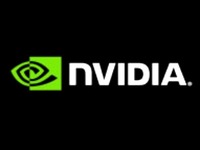SLI is not the only thing that nVidia has licensed. They have also licensed out their CUDA technology (which also has its roots in an nVidia purchase) and a few other items along the way, but they have always held onto their core business of GPUs and now SOCs; at least until recently. Now it looks like nVidia is gearing up to license out their GPUs, LTE Modems and possibly other technology found in their SoC offerings. nVidia CEO Jen-Hsun Huang told Reuters that they will begin licensing their graphics technology to other companies this year.
Do not worry, this does not mean that nVidia is going to give up their GPU business, at least not yet. Instead they are looking to capitalize on their designs and patents to make up for slowing sales of their core product. When nVidia announced the Tegra SoC Huang said he wanted that to be 50% of their core revenue and it is certainly moving in that direction, but there have been things which have prevented larger acceptance in the market including the lack of an LTE modem/radio. Another and perhaps bigger factor is that nVidia has to fight Qualcomm, Samsung and others that have a much more established hold on the market. These two companies are not likely to buy SoCs from nVidia as they already make their own. What they might do, however, is buy graphical and LTE technology from nVidia as an option (if nVidia can show they are competitive).
Now for the time being it looks like this licensing will be limited to Kepler, LTE and some of their Tegra IP, but we fully expect to see nVidia push this into other areas of their portfolio in the future simply because it can be an effective use of the their designs and patents. In the meantime nVidia is also testing the market with their own internally designed products. In the past they have worked with Microsoft, Asus and a few others to develop products, but until this year they have never released a complete product based on their Tegra SoC. So far SHIELD has not generated a large amount of interest and has been seen as something of an “also ran” in the gaming market.
nVidia is making a fairly smart move here by getting their technology available. It is a little late in the game, but with a little effort they can start to build up a solid licensing portfolio and bring in extra money to fund R&D efforts. On top of that nVidia’s GRID project has potential to build revenue without major expense which just means more money in nVidia’s pocket. It will not be too long before nVidia makes the final leap from a chip maker to a technology and services company. We wonder if they will ever move into game distribution as a part of this, or if they will partner up with one of the major players like Steam or Origin in the near future. Since they are licensing technology, building their own handheld gaming devices, and running a cloud service for gaming it only makes sense they would also want to be part of the game distribution channel as well.
What do you think about nVidia licensing their GPU tech? Tell us in our Forum




